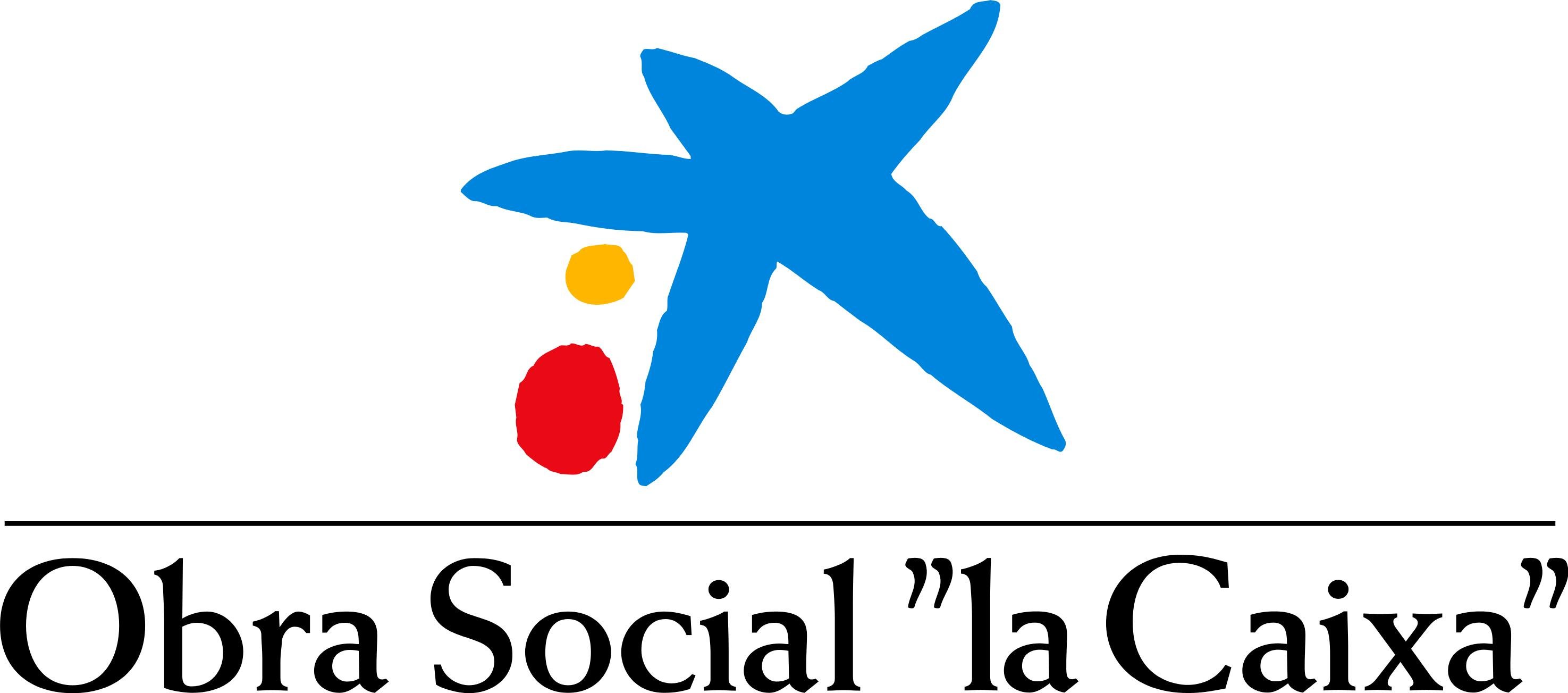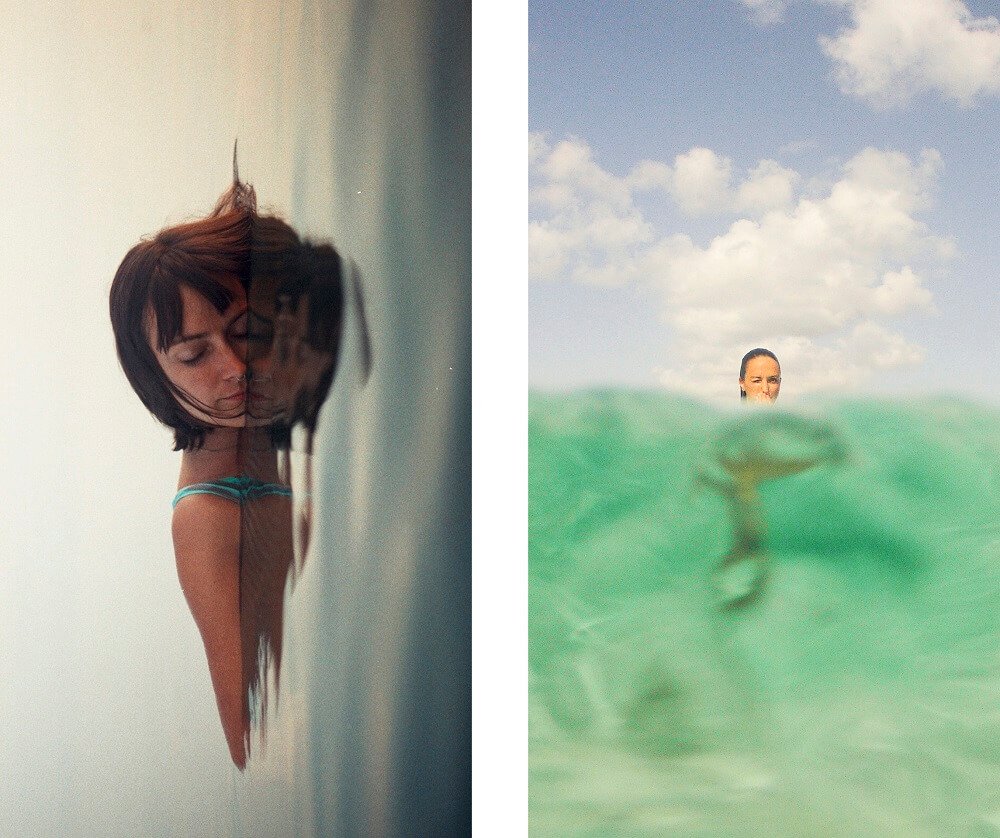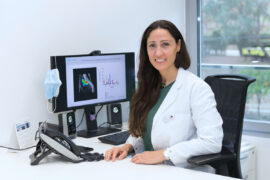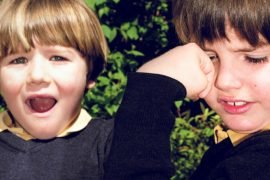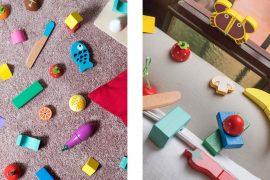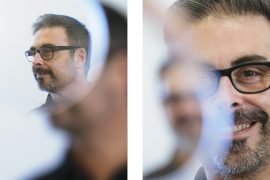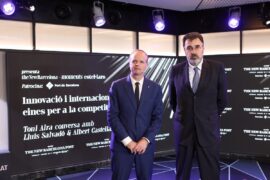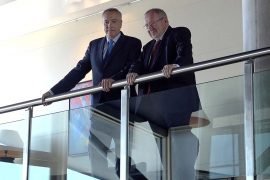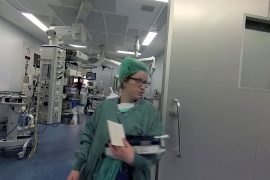The day in which American humourist George Carlin said: “Swimming is not a sport, but a way of not drowning”, he showed a big truth. To swim long distances means to resist kilometre after kilometre, to find yourself alone in the immensity of the sea and to mark small goals to end up reaching the final line. And after nine years participating in the challenge Marnaton de Cadaqués, a race in open waters, the amateur swimmer Rosa Mari Lleal says that everything that she has lived in the waters has helped her recovering the pulse of life.
 “When you cannot look directly at the end, you have to set small goals. This idea was helpful during cancer. If I had thought all the time: ‘There are 16 sessions of chemotherapy…, it’s too much!’, I would not have succeeded. Instead of that, I focused on each chemotherapy to, little by little, go beyond cancer”, she remembers. Rosa Mari recovered completely in 2017, but that does not mean that her background career is over. On September 15th, she returned to the sea for the Marnaton 6.5 km in Cadaqués, with a goal that went beyond swimming back to land: raising funds for cancer research.
“When you cannot look directly at the end, you have to set small goals. This idea was helpful during cancer. If I had thought all the time: ‘There are 16 sessions of chemotherapy…, it’s too much!’, I would not have succeeded. Instead of that, I focused on each chemotherapy to, little by little, go beyond cancer”, she remembers. Rosa Mari recovered completely in 2017, but that does not mean that her background career is over. On September 15th, she returned to the sea for the Marnaton 6.5 km in Cadaqués, with a goal that went beyond swimming back to land: raising funds for cancer research.
It is a campaign, Braçades contra el càncer (“strokes against cancer”), that she and 49 swimmers more promoted with the support of the FERO Foundation and that contributes to the development of the oncology studies. The idea of crossing strokes and science arose in 2014 from her friend and swimmer Veronica Sagnier, who had lost her mother because of breast cancer. This September, the campaign became “The cause of the month” of www.migranodearena.org , a prize with which the solidarity crowdfunding platform and Obra Social “la Caixa” award the most popular initiatives.
The money collected will go to the research done at Vall d’Hebron Hospital in Barcelona in the field of immunotherapy and liquid biopsy; two methods that, as the director of the FERO Foundation, Piru Cantarell, says, reduce the side effects of the cure of tumours and allow more personalized treatment for patients.
Breast cancer prevented Rosa Mari from swimming long distances for two years, but finally she has returned to the sea and now thinks that her success has been the same one as many other people, and she accepts humbly that her story is an example for others. “It’s a way to make them see that I have risen from a fall, which is the same again and that everything can be overcome“, she says. Next, she points out that, just like in swimming competitions, the most important thing to overcome a cancer is to rely on one’s own abilities. “Although, to avoid the weakening of the force, it is imperative to have the support and affection of others. When you’re exhausted it is essential that someone tells you: ‘Go on, we can do it!'”.
Rosa Mari says that when she finished the last Marnaton and when she heard the diagnosis confirming the end of the illness, she experienced a very similar feeling. The reason? According to her, in both cases “the fight is similar”, and “immobility is synonymous with defeat”. Fortunately, the swimmer has always been far from staying still. And many others have followed her and will keep on doing it.
Photographs: Right – Mònica Figueras / Left – Sara Costa
Text: Alba Losada
You can read more stories like this on ALMA, the social social media, a digital space devoted to the social field, which brings a new look at the present and the future of society, from an optimistic and diverse point of view, and from all the initiatives that “la Caixa” Foundation promote.

